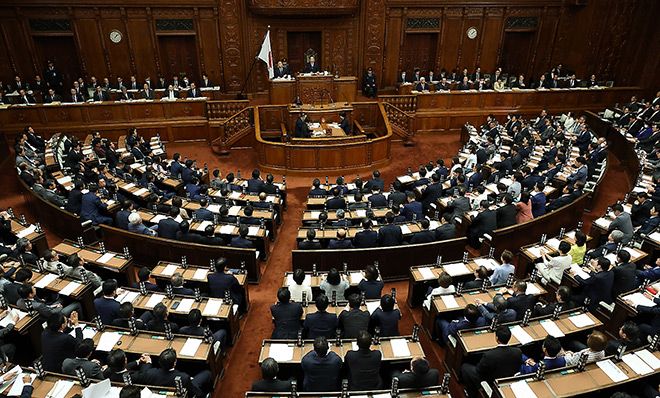
A long sought-after bill to provide compensation to people with disabilities who were forcibly sterilized under the former Eugenic Protection Law passed unanimously in the Lower House on Oct. 7.
Following the plenary session, the bill is expected to be passed at the Upper House and be enacted on Oct. 8.
The bill was compiled by a cross-party group of Diet members in response to the Supreme Court’s ruling in July that the former law was unconstitutional.
The Lower House on Oct. 7 also passed a resolution to formally apologize to the victims and rectify the damage they were subject to.
The purpose of the former law, which was enacted in 1948 and remained in effect until 1996, was to “prevent the birth of defective offspring.”
It is estimated that about 25,000 sterilization operations and 59,000 abortions were performed under the now-defunct law.
Since 2018, there have been a series of lawsuits seeking damages from the central government.
In 2019, the lump-sum payment law was passed by legislators to provide a flat sum of 3.2 million yen ($21,630) to victims of forced sterilization. However, it was not based on the assumption that the former law was unconstitutional and that the government was liable for compensation.
Under the new compensation system, the government will pay 15 million yen to victims of forced sterilization and 5 million yen to their spouses. Both can be claimed by the surviving family members if the individual is deceased.
None of the plaintiffs in the Supreme Court decision had abortions alone. However, based on hearings from the victims, the legislators decided to provide 2 million yen as a lump sum to the victims. Spouses and surviving family members are not eligible.
Once the law is enacted, it will go into effect three months after its promulgation.
The Children and Families Agency will be in charge of damage assessment.
However, some issues remain to be addressed.
One of the challenges is ensuring that victims are aware of the system.
There were approximately 25,000 cases of sterilization under the former law. In contrast, only about 1,000 cases have been certified under the 2019 lump-sum payment law.
Under the new compensation system, the central government will not notify victims individually regarding the payment of compensation.
As with the administration of the lump-sum payment law, the central government will leave it to prefectural governments to oversee the process from there.
The central government has stated that the reason for this is that victims have various circumstances, such as “I have not told my family” or “I don’t want to be reminded of it.”
Lawyers for the victims have pointed out that the central government “must apologize to each and every victim and take the stance that they should receive benefits.”
The lawyers have agreed to hold regular meetings with the central government to discuss the operation of the system, and they will continue to ask the central government to notify the victims individually.


